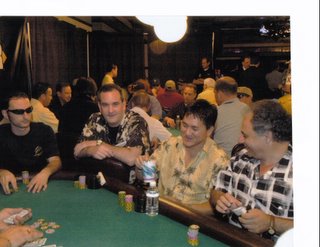Since 1995, when the first online gambling sites opened their doors for business, legislators have unsuccessfully tried to stop the unprecedented growth in online gaming. Even though online gaming revenues are in excess of $12 billion annually, all these legislators can think of is how to stop it instead of thinking about how to regulate it. Previous legislation that was unsuccessfully proposed actually suggested that banks and financial institutions should "police" their clients and prevent them from sending money to online gaming sites. How insane is that concept? Would you want your bank inquiring as to what you are doing with your hard earned money on deposit at their bank? The newest legislation again attempts to stop the flow of money to these sites by proposing legislation that would prohibit online gaming sites from accepting money from financial institutions. Only one problem smart guys...these sites are all based offshore (online gaming is illegal in the USA) so they are not subject to these laws!! How do these people even get elected in the first place? Anyway, there are an estimated 70 million poker players in the US and if even a fraction of them made their voices heard it could have an impact. I sent the following e-mail to Sentaor Rick Santorum to express my thoughts on the subject and actually got a reply (probably canned, but what can I expect?).
Senator, I am writing to urge you to oppose pending legislation that would limit the rights of individuals to play poker online. Currently, there are two bills in the House, H.R. 4411 introduced by Rep. James Leach (R-IA) and H.R. 4777 introduced by Rep. Robert Goodlatte (R-VA). And in the Senate, Jon Kyl (R-AZ) is pushing similar legislation that he wants to introduce.
As an avid poker player, I feel strongly that these bills and any other legislation that deny Americans the right to play a game of skill such as poker on the Internet, seriously and egregiously violate my personal freedoms.
More than 70 million people today enjoy poker. And while most play at home, in taverns or poker clubs, many enjoy this game of skill with friends and family on the Internet. The possibility of the federal government stripping away this right to play online is very troubling to me.
These bills trample the freedoms of online poker players and represent a slippery slope that could lead to the federal government denying citizens the right to play poker in offline venues. The bills also hypocritically make exceptions for certain types of gambling, including internet state lotteries, placing online bets for horse races and select fantasy sports, while prohibiting poker, which is objectively a skill game.
Equally troubling, though, are the bill’s enforcement mechanisms. All three proposals contain banking enforcement provisions which would extend a “know your customer” relationship well beyond what I want my bankers to know about my financial affairs. This regulation would require bankers to monitor my on-line purchases and even review my checks. Like most Americans, I choose my bank, and deposit my paycheck for safekeeping, not for them to monitor my withdrawals, funds transfer or even individual checks. These provisions put the government too deep into my pocketbook. According to Forbes’ magazine there are 5 FBI agents assigned to internet gambling, I demand that American taxpayers know the full cost of enforcing a ban on my rights to play poker on-line.
Separately, in Rep. Goodlatte’s legislation, Internet service providers (ISPs) are forced to remove gambling related hyperlinks upon court order. Such mandates require ISPs to remove or disable access to online sites that the government deems violations. This is censorship of the Internet, plain and simple. Congress rightly criticized China for blocking the free flow of information to its citizens via the Internet, and now Goodlatte’s bill deserves similar scrutiny.
From average citizens to presidents, generals, Members of Congress and Supreme Court justices, Americans have been playing poker for centuries, making it a rich part of our cultural heritage. Today, the evolution of game on the Internet should not be restricted by overarching government interference, and simply by putting the word “internet” in front of poker does not make it wrong.
I urge you to take these concerns into consideration and oppose H.R. 4411, H.R. 4777 and the Kyl proposal that will make outlaws of poker players who enjoy the game online.
I think there are much more serious issues that these legislators should be expending their time and energy on. This is NOT one of those issues!
Subscribe to:
Post Comments (Atom)

5 comments:
If this post caused another bledgie I am going to be pissed. I don't know if the blogger site is messed up today, but it is acting very strange, pages come up looking like you're in "safe mode" and I edited this damn thing 10 times already!! Let me know fellow bloggers!
Completely sticky, scrunched-up-in-there, BLEDGIE!!!....Not very nice to look at, nor is it something one would expect from the 2006 BBofTY recipient. A real shame to have to witness this type of Blogstruction.....a complete Blogjam.
I have to plead ignorance here, or at leat blame it on eblogger, their site was acting very funny this morning. How can it look fine in the view then not be right upon publishing? What am i missing? HELP?
I removed Santorum's reply e-mail and it looks like the bledgie is gone (you tell me), he must have inserted some secret HTML code or something into his reply and that jammed up my post
tim...the casinos are behind this, don't you realize? senator from AZ is invovled because the Indian casinos are lobbying him...they have been trying to squash online gambling since day one...does that mean you'll have to boycott the Borgata? Ak says you can still go to the Russian websites for gambling, or we can just all move to the Caymans :)
Post a Comment